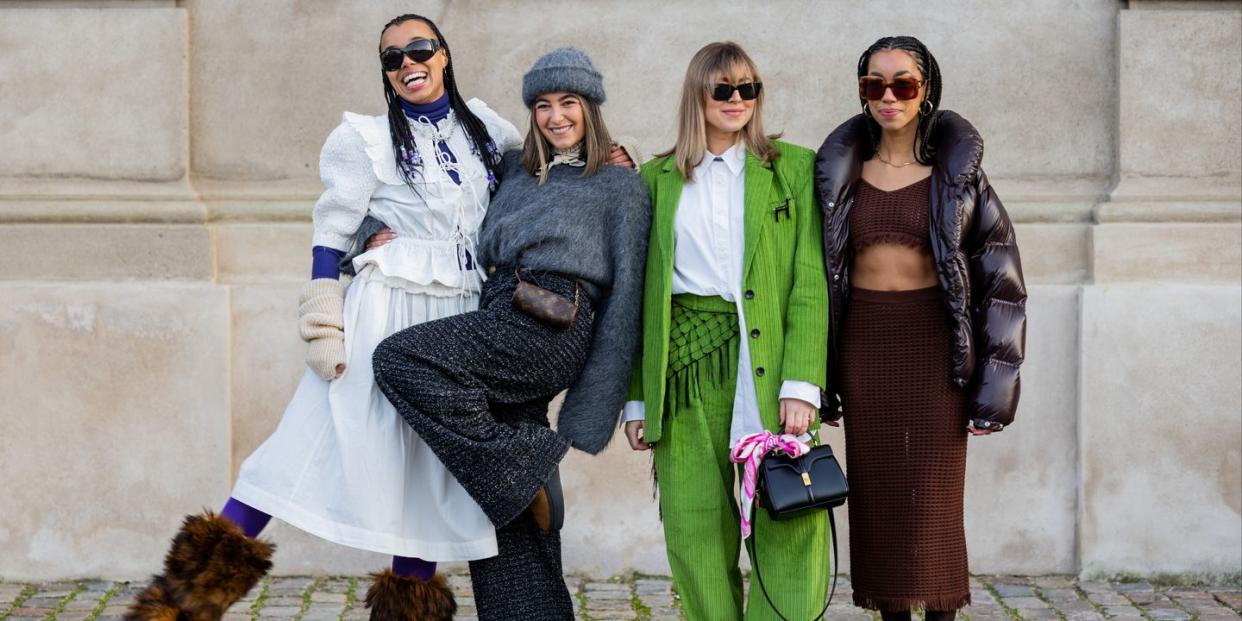Why Labour's Win Is Good News For The UK's Creative Industries

With echoes of Tony Blair’s seminal 1997 'new dawn' speech, Labour leader – and now Prime Minister – Keir Starmer today has offered reassurance to the British people that he understands the trust they have bestowed upon his government to begin the process of healing the wounds of our nation. 'The sunlight of hope, pale at first but getting stronger through the day, shining once again, on a country with the opportunity after 14 years to get its future back,' he said during a speech at the Tate Modern this morning, shortly after former Prime Minister Rishi Sunak publicly conceded defeat.
Starmer is a leader who, despite the inevitable challenges his government will face, seemingly understands the weight of responsibility he is inheriting. He knows that, despite Labour's landslide victory (and, in turn, the Conservative's worst electoral defeat since 1835), the heaviness of the work that must be undertaken is seismic. Most notably, perhaps, in restoring to glory Britain's creative industries, which, despite generating an estimated £126 billion to the economy in 2022 and employing 2.4 million people, have seen their financial support haemorrhaged in the last decade.
FIND OUT MORE ON ELLE COLLECTIVE
Among Labour's string of promises to right the wrongs of over a decade of Tory rule is its vow to restore Britain's creative industries to their former glory, with Starmer having pledged at the Labour Creatives Conference in March 2024 to make the arts more accessible to young people from all backgrounds. Days after a Labour analysis showed that almost half of all British cultural stars nominated for leading awards in the last decade were educated at private school, Starmer set out an 'access to the arts' plan. The former Director of Public Prosecutions said the Conservative party had overseen 'a creativity crisis in schools', with GCSE enrolment in arts subjects dropping by 47% since 2010. Working-class children, he added, 'bear the brunt of that collapse'.
But what exactly is Labour's plan to revive the prospects of our once-glittering creative industries? While slightly opaque, their strategy, which was incorporated into the manifesto the party released in June 2024, is clear that the party will ensure that arts and music 'will no longer be the preserve of the privileged few.' The party will endeavour to 'support children to study a creative or vocational subject until they are 16' as it sets out to establish a National Music Education Network, which it hopes will be 'a one-stop shop with information on courses and classes for parents, teachers and children.' In his speech to the conference, Starmer also promised to support freelancers’ rights, crack down on ticket touting and improve access to creative apprenticeships. While, as has been established as fairly characteristic for the Labour leader, the speech was short on any particularly defining details, the fact that he gave a speech dedicated to restoring the arts to their former prominence was headline-making.
Today, creative organisations and individuals alike have congratulated Labour's win, while also interrogating its intentions for their future. 'Our new government must get to grips with the performing arts and entertainment, a critical sector for the UK's long-term success,' Paul Fleming, the General Secretary of Equity, the trade union representing professional performers and other creative individuals, wrote on X. 'We'll be pressing the new administration to set out a long-term plan for UK arts funding to reach the European average, to tackle the high upfront fees charged by casting directors, to make Universal Credit fairer for freelancers, to ensure public subsidy only supports work on decent union terms, and to fight for better rights in the video games and TV commercials sector.' The Publishers Association also welcomed the new Labour government, saying it is 'optimistic' that the party will recognise 'the importance of the UK's creative industries.'
“With the election completed, our new government must get to grips with the performing arts and entertainment, a critical sector for the UK’s long-term success.
🧵1/4— Equity (@EquityUK) July 5, 2024
The path is far from straight forward, but the return of Labour to power heralds a return to old Labour values; that no matter their background, everybody should have access to the core tenets of culture. Aware that his every move on today of all days will telegraph meaning and intention to the rest of the world, even Starmer delivering his first speech as a victor at London's Tate Modern spoke volumes of his intention for the arts. This is a leader who, after a decade of division, is turning to face the sunlight of hope that is beginning to stretch upon the horizon.
ELLE Collective is a new community of fashion, beauty and culture lovers. For access to exclusive content, events, inspiring advice from our Editors and industry experts, as well the opportunity to meet designers, thought-leaders and stylists, become a member today HERE.
You Might Also Like


